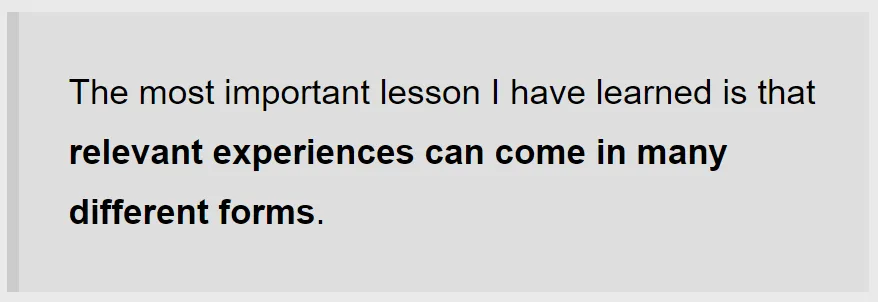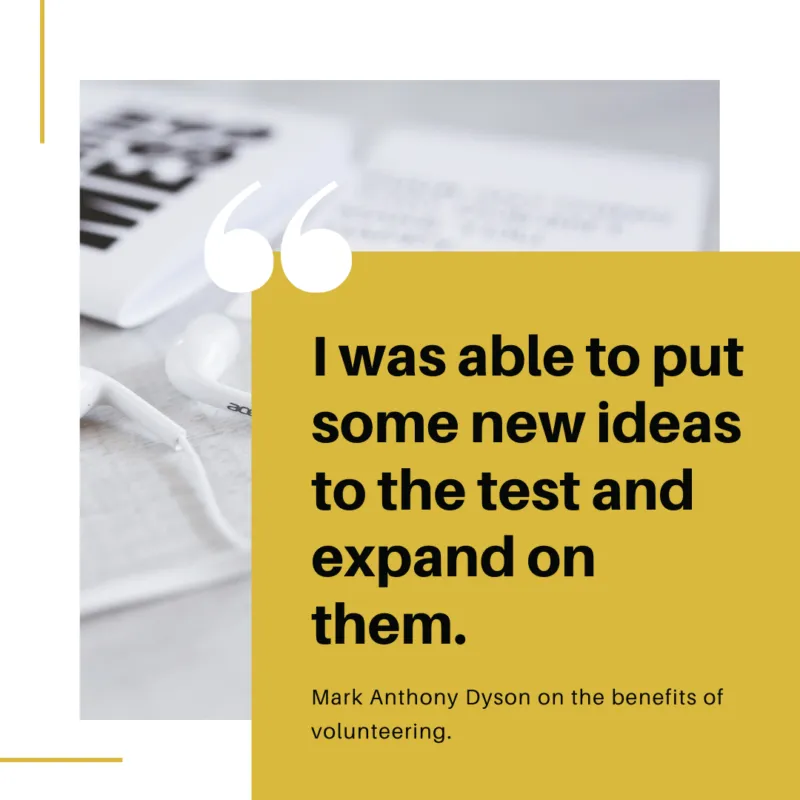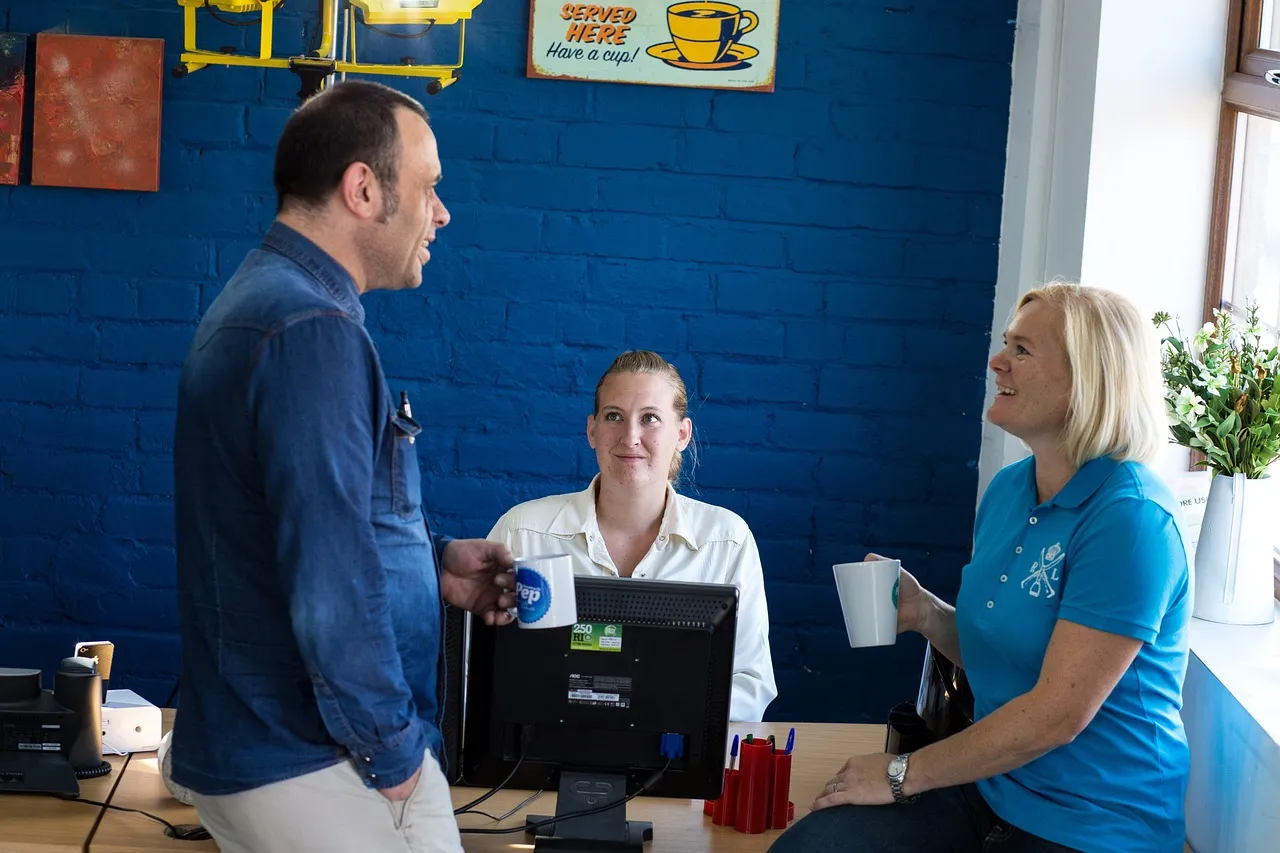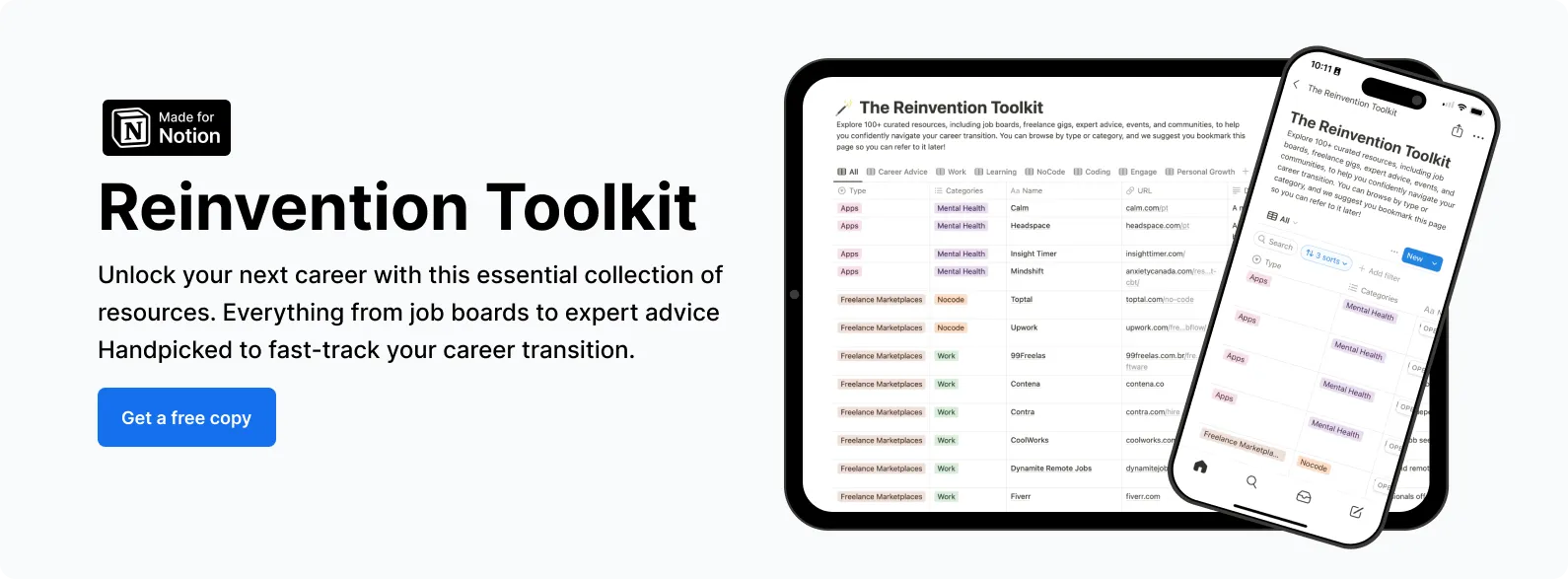6 Ways Volunteering And Internships Can Help You Get A Job
Discover how volunteering and internships can boost your job prospects with our guide on six key benefits, including skill development, networking opportunities, and enhancing your resume.
Table of contents

Discover how volunteering and internships can boost your job prospects with our guide on six key benefits, including skill development, networking opportunities, and enhancing your resume.
Feeling stuck as a fresher or worried about those long gaps in your job history? Volunteering and internships may be the key to kickstarting your career. They’re not just about filling space on your resume; they’re about gaining real-world experience that can set you apart.
Whether you’re starting or trying to bounce back, these opportunities can help you build practical skills, expand your network, and show future employers your dedication and passion. Plus, they leave a lasting impression on your resume that can make all the difference. Dive in to discover six powerful ways volunteering and internships can turn your career dreams into reality.
Ready to turn your volunteering and internship experiences into job-hunting gold? These six tips will show you how to make the most of every opportunity. From gaining practical experience to impressing employers, here’s how to leverage your efforts and land that dream job with six real-life lessons.
Kelly Lam Ma found herself feeling behind as she watched her peers land internships and part-time jobs while she had little work experience. "I really just wanted to relax and hold onto summer a little longer before starting college," she admits. To catch up, she leaned on her volunteer work and leadership roles to bulk up her resume.

Her volunteer experience turned out to be incredibly valuable. During an interview for an on-campus job, Kelly focused on the skills she gained through volunteering, such as professionalism and strong interpersonal skills. This impressed her interviewer, leading to a job offer. "It doesn’t matter if a position is paid or unpaid or if it is 'technically labeled' as a hobby or volunteer work. Instead, recruiters are more interested in what skills you’ve developed," she explains. This experience not only enhanced her resume but also built her confidence and practical knowledge.
Volunteering is a fantastic way to gain practical experience, especially if you're just starting or trying to re-enter the job market. At NoCode Institute of Technology, our programs are designed to help you acquire real-world skills that can make a difference in your career. Learn more about how our courses can help you gain the experience you need.

When Alyssa Wolverton took her career class, she had a lightbulb moment. "I learned that the skills I received from my volunteerism were the things my employer was looking for, not just the volunteer position," she recalls. This realization transformed how she viewed her volunteer work. Alyssa began focusing on a skills-based resume, highlighting her organizational abilities and event management experience.
Her journey to becoming employable has been a step-by-step process. "I volunteered for the Student Conservation Association because I had already volunteered a lot in high school," Alyssa explains. This led to internships with the Trinity River Audubon Center and her local municipality as an Environmental Intern. These roles allowed her to apply her skills in real-world settings, preparing her for future leadership positions. Years later, she is now a Project Management Assistant at the US Army Corps of Engineers. Alyssa’s confidence in her volunteerism led to tangible career opportunities.
Volunteering can significantly enhance your existing knowledge and skills, making you more attractive to potential employers. At NoCode Institute of Technology, our programs are designed to help you build and sharpen the skills you need to succeed.
Here is a guide to learn strategies to stay ahead in your career, enhance your skills, and embrace lifelong learning for personal and professional growth.

Becki's journey shows how volunteering can be a powerful way to break into the job market. Each year, Becki attended her university's career fair and volunteered with the extracurricular club that helped host it. This involvement landed her a part-time position during her last two years of college, providing her with great experience in her field. After graduation, a contact from the career fair offered her a full-time position. Although she didn't accept it, having that offer boosted her confidence. Becki later received two more interview calls from contacts she made while volunteering.
Becki’s success wasn’t just about attending the fair—it was about her strategic volunteering. "I always volunteered during the tear-down shift," she explains. This allowed her to assist company reps she had spoken with earlier, making a lasting impression. "Nothing endears you to a tired company rep like helping them wheel their display to the parking garage," Becki notes. This thoughtful gesture helped ensure her resume stayed at the top of the stack. Becki’s example shows how volunteering can be a strategic move to get your foot in the door and make lasting professional connections.
Volunteering can be a game-changer for job seekers facing employment gaps due to unforeseen circumstances like furloughs, layoffs, or even the COVID-19 outbreak. Mark Anthony Dyson shared how volunteering can make a significant difference in such scenarios. "Volunteering is usually one hundred percent controllable by you, depending on your cause," he says. This flexibility allows individuals to stay active and relevant in their fields, even when paid opportunities are scarce.

Volunteering can help you build and control your personal brand while gaining new skills. "When people see you as a volunteer, especially if your cause aligns with the organization, it’s seen as a plus," Mark explains. This approach allows you to demonstrate your commitment, acquire practical experience, and fill those dreaded gaps on your resume. It also creates opportunities to connect with potential employers on a deeper level. Mark recalls, "I remember being able to use my new skills for a project at my church, which expanded my ability and made me more experienced."
Volunteering is a strategic way to keep your skills sharp and impress future employers. Even at NoCode Institute, our programs are designed to help you gain valuable experience through cohort learning, just like volunteering. You can learn no code skills to stay relevant in the tech job market and use that experience to secure high-paying jobs. Explore practical tips and real-life examples of upskilling and reskilling in today's fast-paced work environment with this guide.

Volunteering can be a fantastic way to prepare talking points for job interviews. imsimplesteve, a Reddit user, shared how volunteering during his last semester of college helped him land his dream job. As an MIS major, he reached out to the head IT person at a local nonprofit and offered to work for free to gain experience. "People love to help students, especially those who take initiative," he says. By volunteering a few hours a week for about five months, he gained valuable experience and practical skills.
This experience proved invaluable during job interviews. "Mainly, I was able to talk about the experience in job interviews, and I feel it gave me an edge over my competition," imsimplesteve explains. Knowing what job he wanted after graduation, he looked at job descriptions and discussed key skills with his supervisor. This allowed his supervisor to assign tasks that were relevant to his desired job, making him well-prepared and confident in interviews. "It definitely helped me get the amazing job I have now," he adds.
Volunteering not only provides you with real-world experience but also equips you with impressive talking points for interviews. Whether it is sitting in a job interview or pitching to your clients, talking points play a major role. At NoCode Institute you can learn valuable no code skills to expand your knowledge and thus, your capability to impress employers.

Volunteering is an excellent way to develop your interpersonal and other soft skills. cora_the_fox, a Reddit user, shared how her time in a student NGO and other volunteer activities significantly shaped her personal and professional life. "I've learned soft skills and social skills and also made friends for life," she says. These experiences not only enhanced her university years but also played a crucial role in her self-growth and discovery.
"You learn how to work with all kinds of people; I can't count how many people I've wanted to strangle," she humorously adds. These interactions help you build patience, empathy, and effective communication skills. The ability to collaborate and navigate different personalities is a highly sought-after trait by employers.
By volunteering, you can develop essential soft skills that will make you more adaptable and effective in any job. NoCode Programs are specifically designed to emphasize the development of both technical and interpersonal skills. You learn with a community to ensure you are well-rounded and job-ready.
Looking to make a successful career shift? This guide will help you navigate transitions, manage uncertainty, and build resilience. It's perfect for professionals seeking practical advice and support during their career change journey.
Volunteering and internships are powerful tools that can significantly boost your career prospects. They offer practical experience, sharpen your existing skills, and help you get a foot in the door. They also fill employment gaps and prepare you for interviews by providing valuable talking points. Moreover, volunteering is a fantastic way to develop your interpersonal and soft skills, making you a well-rounded candidate. These experiences not only enhance your resume but also build your confidence and network, setting you up for long-term success.
At NoCode Institute, we understand the importance of gaining real-world experience and developing essential skills. Our programs are designed to help you build both technical and soft skills through hands-on learning and community support. Whether you're looking to switch careers or enhance your current skill set, NoCode Institute provides the resources and guidance you need to succeed. Take the next step in your career journey with us and explore our programs today. Enroll now!

Looking to re-invent yourself and turn your talent into a career? Stay up to date with the latest.